Sleep is a vital part of our daily lives, but what really happens to our bodies during this time? Each night, our bodies go through a complex series of changes that help us rest and recover. These changes affect everything from our brains to our muscles.
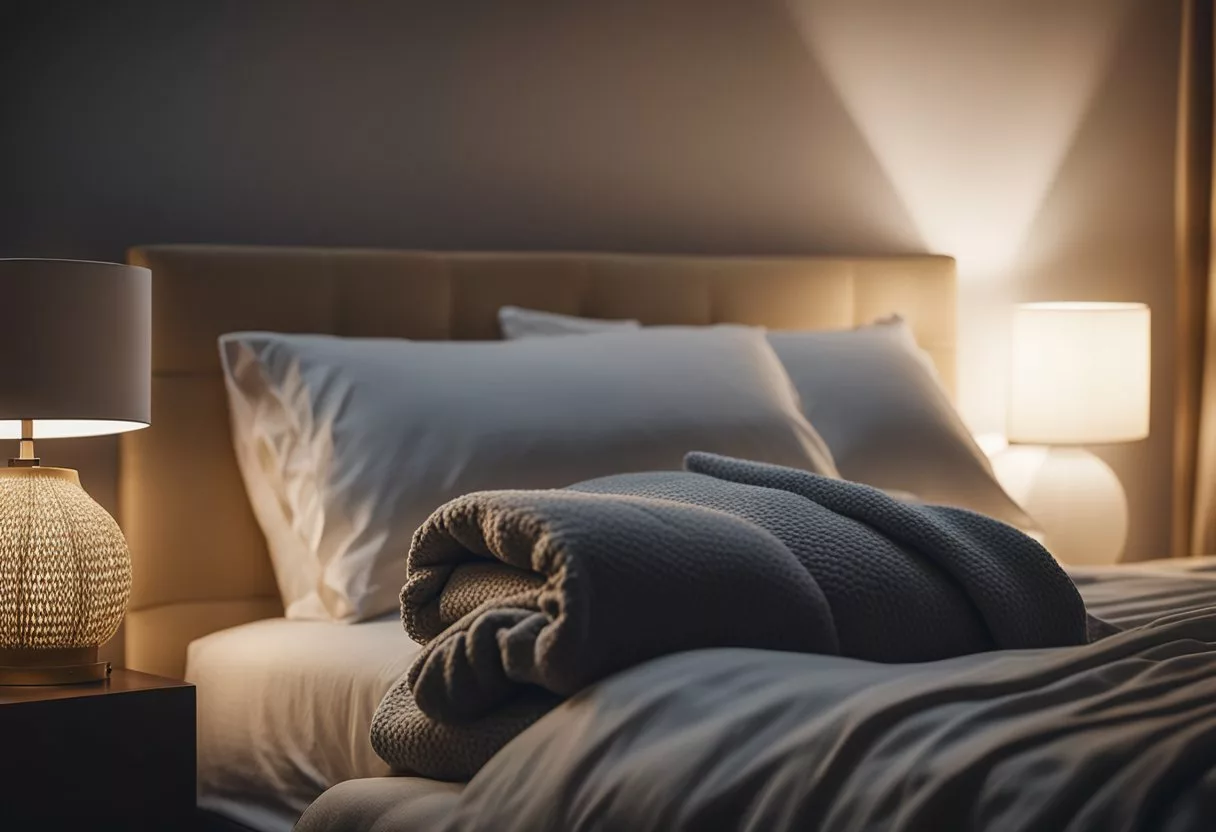
Your body goes through different sleep stages, each with its own set of physical changes. During deep sleep, your body works to repair muscles, organs, and cells. Your brain activity changes too. In REM sleep, your brain can be more active than when you’re awake.
Sleep affects many parts of your health. It helps your immune system work better. It also impacts how well you think and how you feel emotionally. Getting enough good sleep is key for staying healthy and feeling your best.
Key Takeaways
- Sleep involves different stages with unique physical changes
- The body repairs itself and boosts immunity during sleep
- Good sleep is essential for mental and physical health
Understanding Sleep
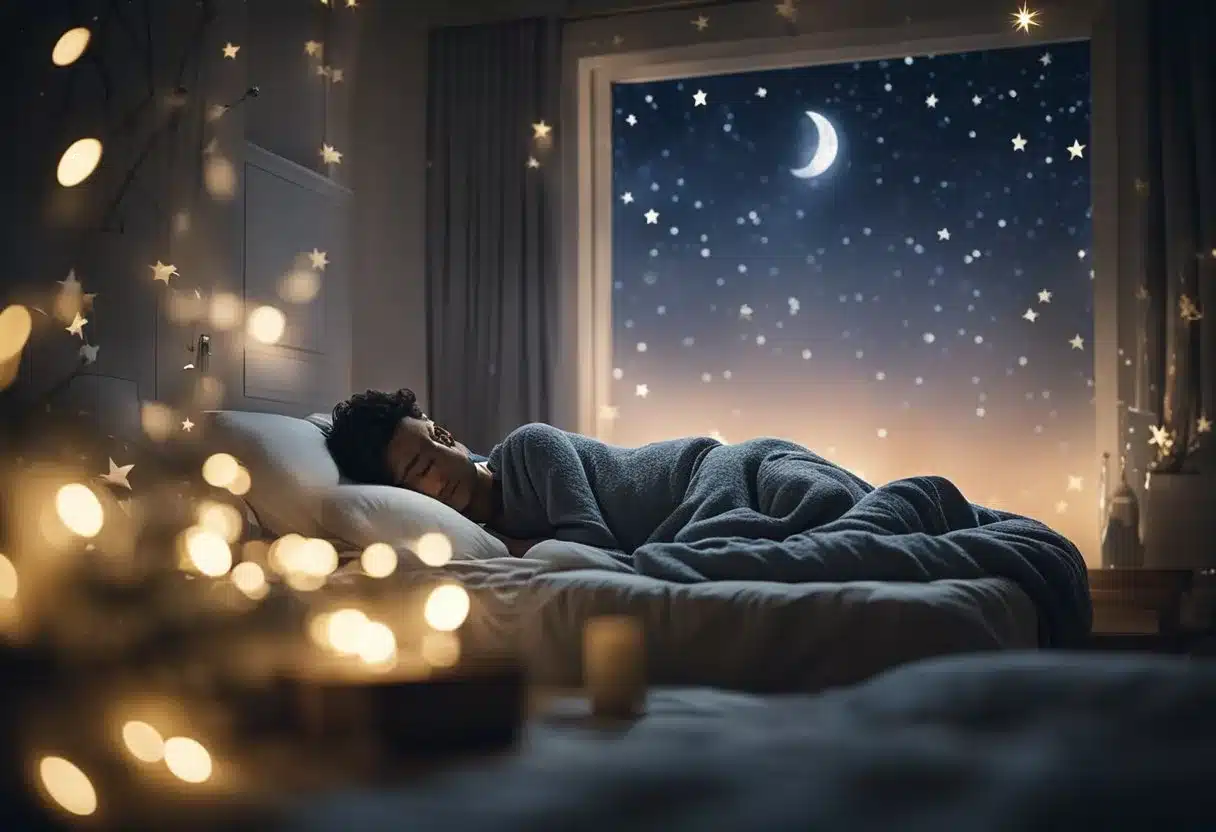
Sleep involves complex processes in our bodies and brains. It happens in cycles and is regulated by our internal biological clock.
The Sleep Cycles
Sleep occurs in repeating cycles throughout the night. Each cycle lasts about 90-110 minutes. During the night, we go through 4-6 sleep cycles.
These cycles include both non-REM (NREM) and REM sleep[1]. NREM makes up about 75-80% of sleep time. REM takes up the remaining 20-25%.
As the night goes on, REM periods get longer. Early cycles have more deep sleep. Later cycles have more REM sleep.
Stages of Sleep
Sleep has four main stages. Stages 1-3 are NREM sleep. Stage 4 is REM sleep.
Stage 1 is light sleep. It lasts 1-5 minutes. The body relaxes and brain waves slow down.
Stage 2 is deeper sleep. It makes up about half of total sleep time. Body temperature drops and heart rate slows.
Stage 3 is deep sleep. It’s hard to wake someone from this stage. The body repairs tissues and boosts the immune system during deep sleep.
REM sleep is when most dreaming occurs. The brain is very active. But the body is paralyzed to prevent acting out dreams.
Role of the Circadian Rhythm
The circadian rhythm is the body’s internal 24-hour clock. It regulates sleep-wake cycles.
This rhythm responds to light and darkness. When it gets dark, the brain releases melatonin. This hormone makes us feel sleepy.
The circadian rhythm affects body temperature, hormone release, and other functions. It helps determine when we feel alert or tired.
Disrupting the circadian rhythm can lead to sleep problems. This can happen due to jet lag, shift work, or irregular sleep schedules.
Physiological Changes During Sleep
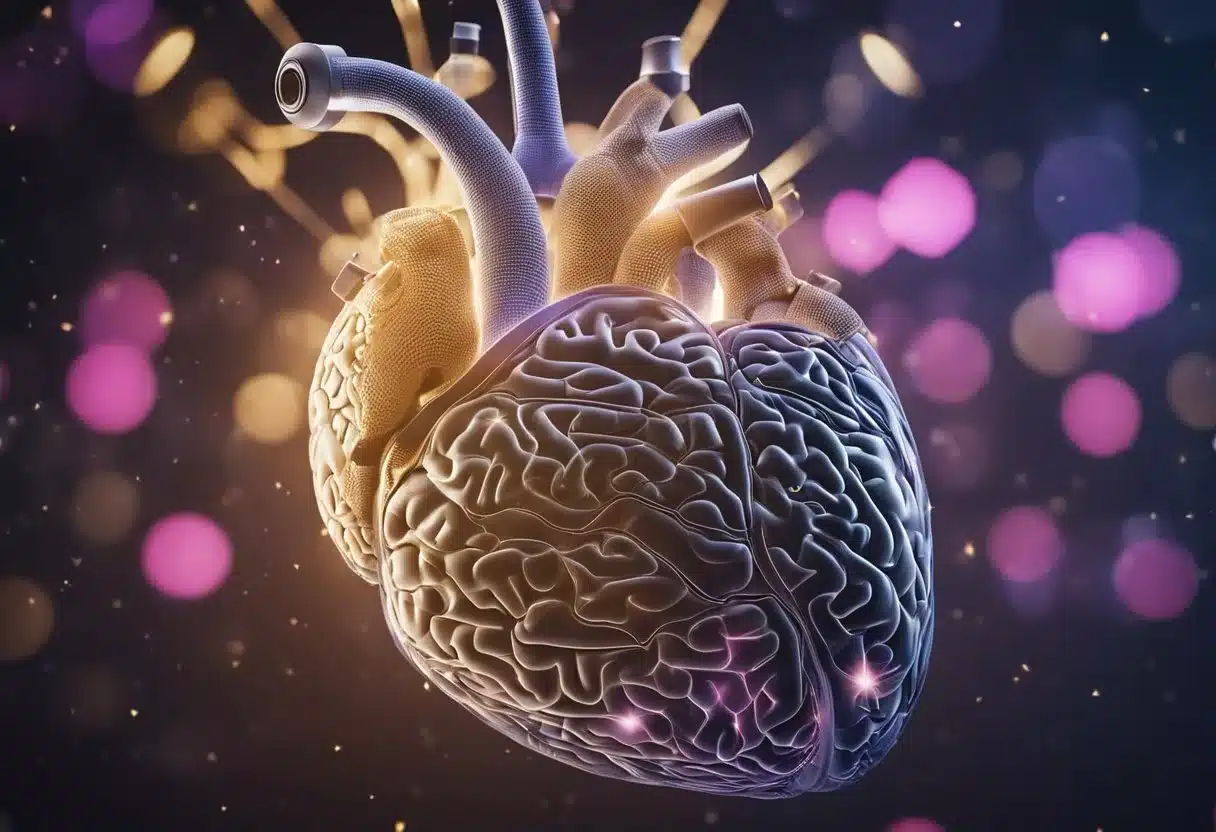
Sleep causes many changes in the body. Your brain, breathing, heart, muscles, and hormones all work differently when you sleep. These changes help your body rest and recover.
Brain Activity and Dreaming
During sleep, brain activity changes in distinct patterns. Brain waves slow down in early sleep stages. They speed up during Rapid Eye Movement (REM) sleep.
In REM sleep, brain activity looks similar to when you’re awake. This is when most dreaming happens. Your eyes move quickly under your eyelids.
Non-REM sleep has different brain wave patterns. These help with memory and learning. Your brain processes information from the day during this time.
Breathing and Heart Rate
As you fall asleep, your breathing slows down. It becomes more regular. Your heart rate also decreases.
During deep sleep, your breathing is slowest. Your heart rate drops to its lowest point. This helps conserve energy.
In REM sleep, breathing can become faster and irregular. Your heart rate may speed up. These changes match the increased brain activity during this stage.
Muscle and Body Relaxation
When you sleep, your muscles relax. This process is called atonia. It’s strongest during REM sleep.
Your body temperature drops slightly when you sleep. This helps save energy. It also signals your body to stay asleep.
Some muscles stay active during sleep. These include your diaphragm for breathing and eye muscles during REM sleep.
Hormone Release
Sleep affects many hormones in your body. Growth hormone levels increase, especially in children and young adults. This hormone helps with growth and cell repair.
Cortisol, often called the stress hormone, decreases during early sleep. It rises again before you wake up. This helps you feel alert in the morning.
Leptin and ghrelin, hormones that control hunger, change during sleep. These changes can affect your appetite the next day.
Melatonin, the sleep hormone, rises in the evening. It helps you feel sleepy and regulates your sleep-wake cycle.
Sleep’s Impact on Health and Well-Being
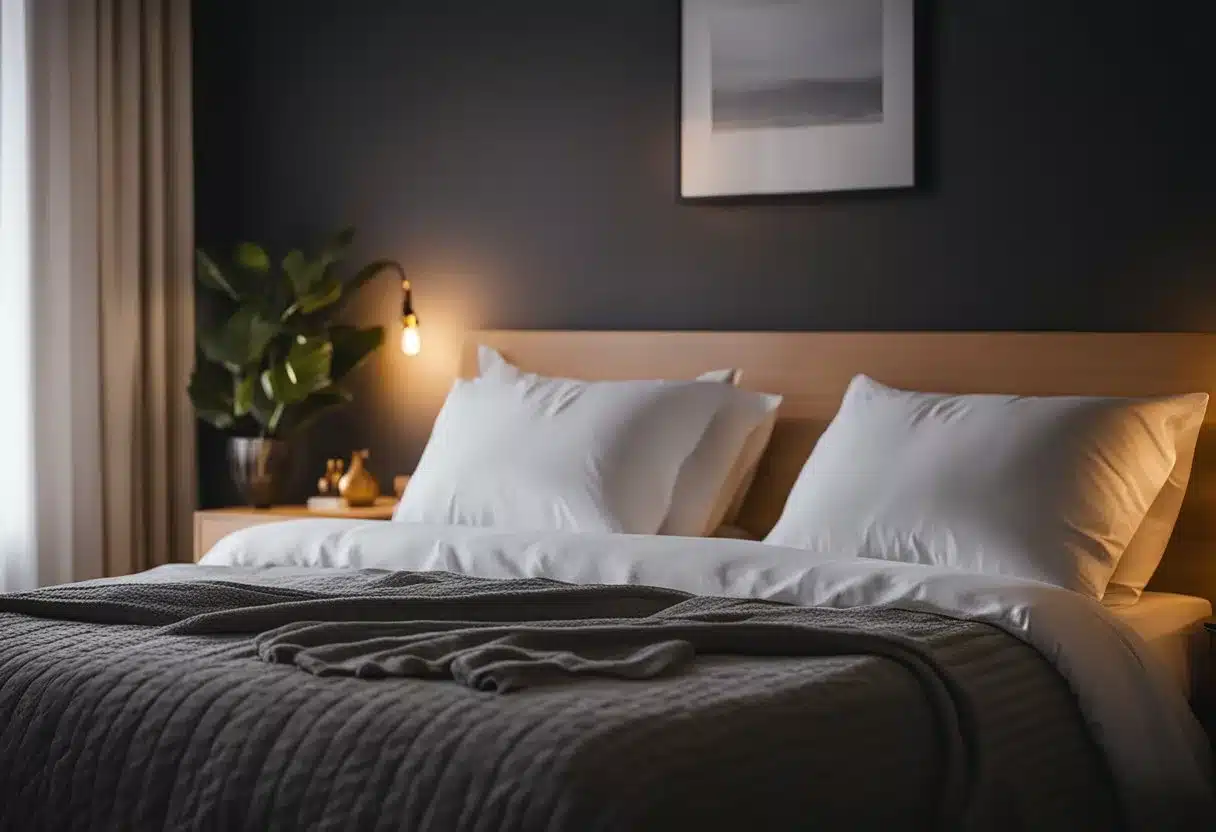
Sleep plays a fundamental role in our physical and mental health. It affects many aspects of our lives, from brain function to immune system strength.
Memory and Learning
During sleep, the brain forms new pathways[2] to help with learning and remembering information. This process is called memory consolidation.
Sleep helps people:
- Solve problems better
- Pay attention more easily
- Make decisions faster
Lack of sleep can hurt these abilities. It may lead to:
- Trouble focusing
- Slower reaction times
- Poor decision-making
Students who sleep well tend to get better grades. Adults who sleep enough often perform better at work.
Immune System Strengthening
Sleep is vital for a strong immune system. While we sleep, our bodies produce proteins called cytokines. These help fight infection and inflammation.
Good sleep habits can:
- Lower the risk of getting sick
- Help people recover from illness faster
- Reduce inflammation in the body
Not getting enough sleep can weaken the immune system. This makes it harder to fight off germs and viruses.
Mood and Emotional Balance
Sleep has a big impact on mood and emotions. People who sleep well often feel:
- Happier
- More energetic
- Less stressed
Poor sleep can lead to:
- Irritability
- Anxiety
- Depression
Sleep helps the brain process emotional information. It allows people to approach challenges with a clearer mind.
Physical Health Effects
Sleep affects many parts of physical health. It helps regulate hormones that control hunger and fullness. This can impact weight and the risk of obesity.
Good sleep is linked to:
- Lower blood pressure
- Better heart health
- Reduced risk of diabetes
Lack of sleep can increase the risk of:
- Heart attacks
- Stroke
- High blood pressure
In children and teens, sleep is crucial for growth and development. It helps with physical changes and brain maturation.
Getting enough quality sleep can help people live longer. Men who sleep well may live up to 5 years longer. Women may gain 2 extra years of life.
Influence of Age on Sleep
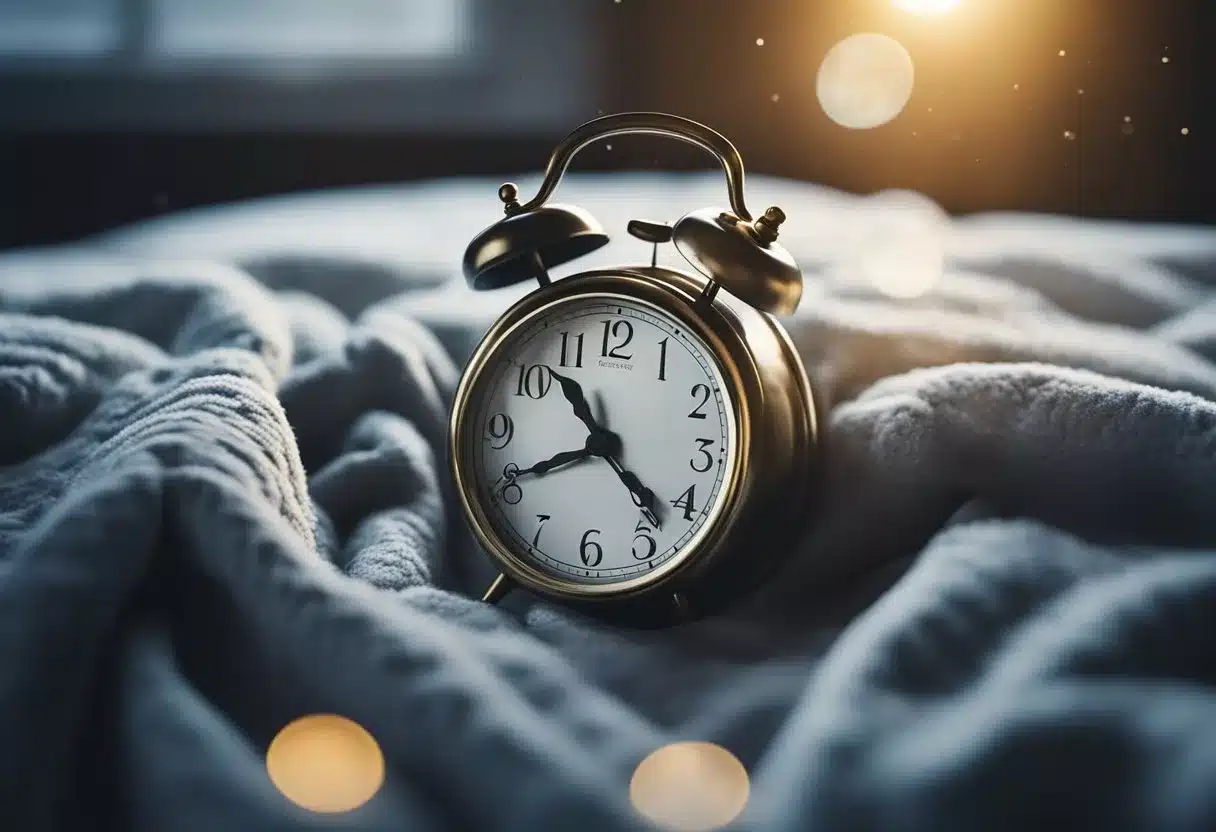
Sleep patterns change throughout our lives. Age plays a key role in how much we sleep and the quality of our rest.
Sleep Patterns in Children and Teens
Children need more sleep than adults. Infants sleep up to 17 hours a day. This drops to about 11-13 hours for preschoolers. Sleep is basic for growth and development[3].
Teens often struggle with sleep. Their body clocks shift, making them want to stay up late. But early school start times can lead to sleep deprivation. This can affect learning and mood.
Table: Average Sleep Needs by Age
| Age Group | Hours of Sleep |
|---|---|
| Newborns | 14-17 |
| Toddlers | 11-14 |
| Teens | 8-10 |
Sleep Changes in Adults and Seniors
Adults typically need 7-9 hours of sleep. But as we age, sleep often becomes lighter and more broken. Many seniors wake up more during the night.
Older adults may experience:
- Earlier bedtimes
- Earlier wake times
- More naps during the day
Sleep disorders like insomnia become more common with age. This can impact sleep quality. Some seniors also deal with restless legs syndrome, which affects 9-20% of older people.
Sleep Disorders and Issues

Many people face problems that stop them from getting good sleep. These issues can hurt health and daily life. Sleep disorders come in different types and have various causes.
Common Sleep Disorders
Insomnia is a very common sleep disorder. It makes it hard to fall asleep or stay asleep. People with insomnia often feel tired during the day.
Sleep apnea is another frequent issue. It causes breathing to stop and start while sleeping. This can lead to loud snoring and feeling tired even after a full night’s sleep.
Parasomnias include odd behaviors during sleep. Sleepwalking and night terrors are examples. These happen more in kids but can affect adults too.
Symptoms and Consequences
Sleep disorders[4] have many signs. Feeling very sleepy during the day is a key symptom. Other signs include trouble breathing at night and moving a lot while asleep.
Bad sleep can make it unsafe to drive. It also raises the risk of other health problems. These may include heart disease, high blood pressure, and weight gain.
Sleep issues can hurt mental health too. They often lead to mood swings, anxiety, and depression. Memory and focus problems are also common results of poor sleep.
Stress and Sleep
Stress and sleep have a close link. High stress makes it hard to fall asleep and stay asleep. This can lead to insomnia.
Sleep problems[5] can also cause more stress. Not getting enough rest makes it harder to deal with daily challenges. This creates a cycle of stress and poor sleep.
Stress raises levels of cortisol, a hormone that keeps people alert. High cortisol at night makes it tough to relax and sleep well. Managing stress through exercise, meditation, or talking to others can improve sleep quality.
Optimizing Sleep for Better Health
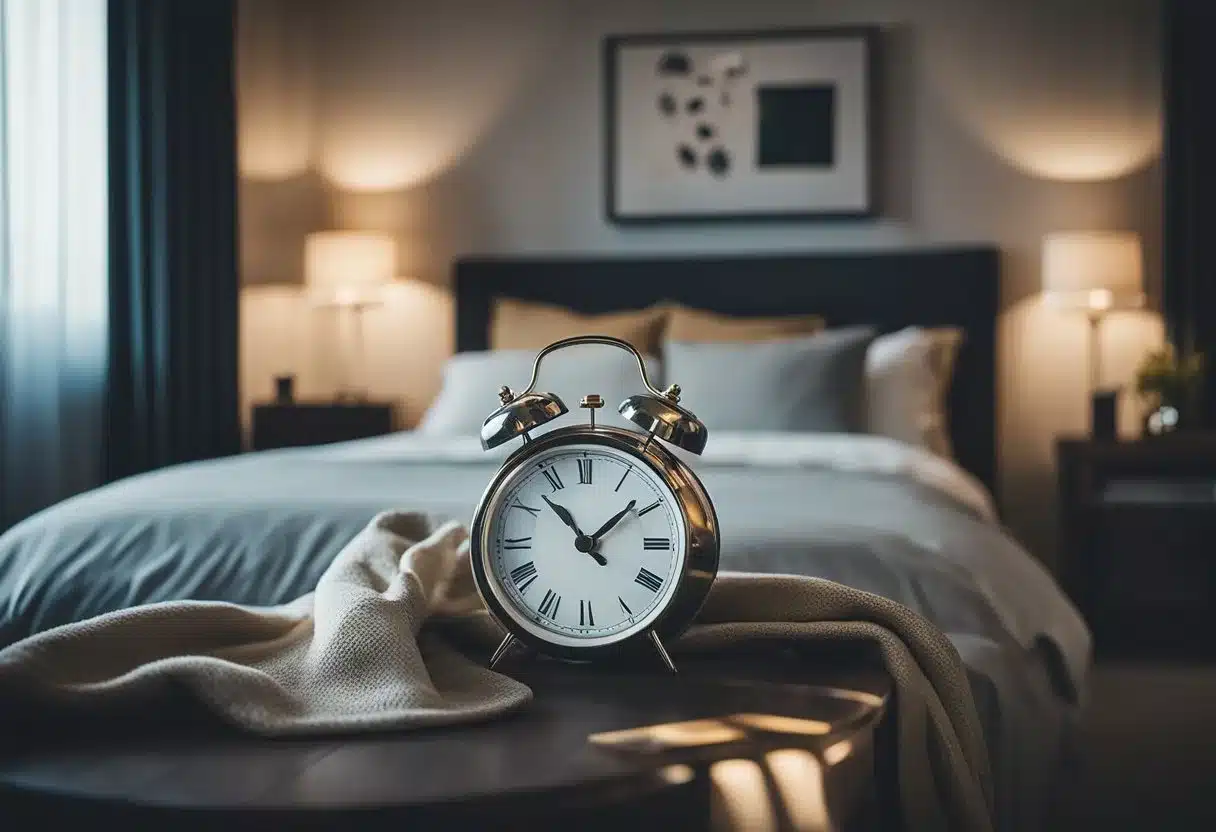
Good sleep habits and a proper sleep environment are key to getting quality rest. What you eat, how you move, and how you relax all play big roles in your sleep.
Sleep Hygiene and Environment
A good sleep routine starts with a comfy bedroom. Keep your room dark, quiet, and cool. Use blackout curtains or an eye mask to block light. A white noise machine can mask disruptive sounds.
Set a regular sleep schedule. Go to bed and wake up at the same time every day, even on weekends. This helps your body’s internal clock.
Limit screen time before bed. The blue light from phones and tablets can mess with your sleep. Try reading a book instead.
Make your bed comfy. A good mattress and pillows help you sleep better. Soft, breathable sheets feel nice too.
Nutrition and Exercise
What you eat affects how you sleep. Avoid big meals close to bedtime. They can cause heartburn and make it hard to fall asleep.
Cut back on caffeine after lunch. It can stay in your system for hours and keep you awake.
Exercise helps you sleep better. But don’t work out too close to bedtime. It can make you feel too energized to sleep.
Try to get some sunlight during the day. It helps set your body’s sleep-wake cycle.
Drink water throughout the day, but not too much before bed. You don’t want to wake up to use the bathroom.
Mindfulness and Relaxation Techniques
Stress can make it hard to sleep. Try relaxation methods to calm your mind.
Deep breathing is simple and effective. Breathe in slowly for 4 counts, hold for 7, then exhale for 8. Repeat a few times.
Progressive muscle relaxation[6] can help. Tense and then relax each muscle group in your body.
Meditation can quiet a busy mind. Start with just 5 minutes before bed. Focus on your breath or use a guided app.
A warm bath or shower before bed can help you relax. The drop in body temperature afterward signals it’s time to sleep.
Write down worries or to-do lists. This can help clear your mind for sleep.
Closing Thoughts
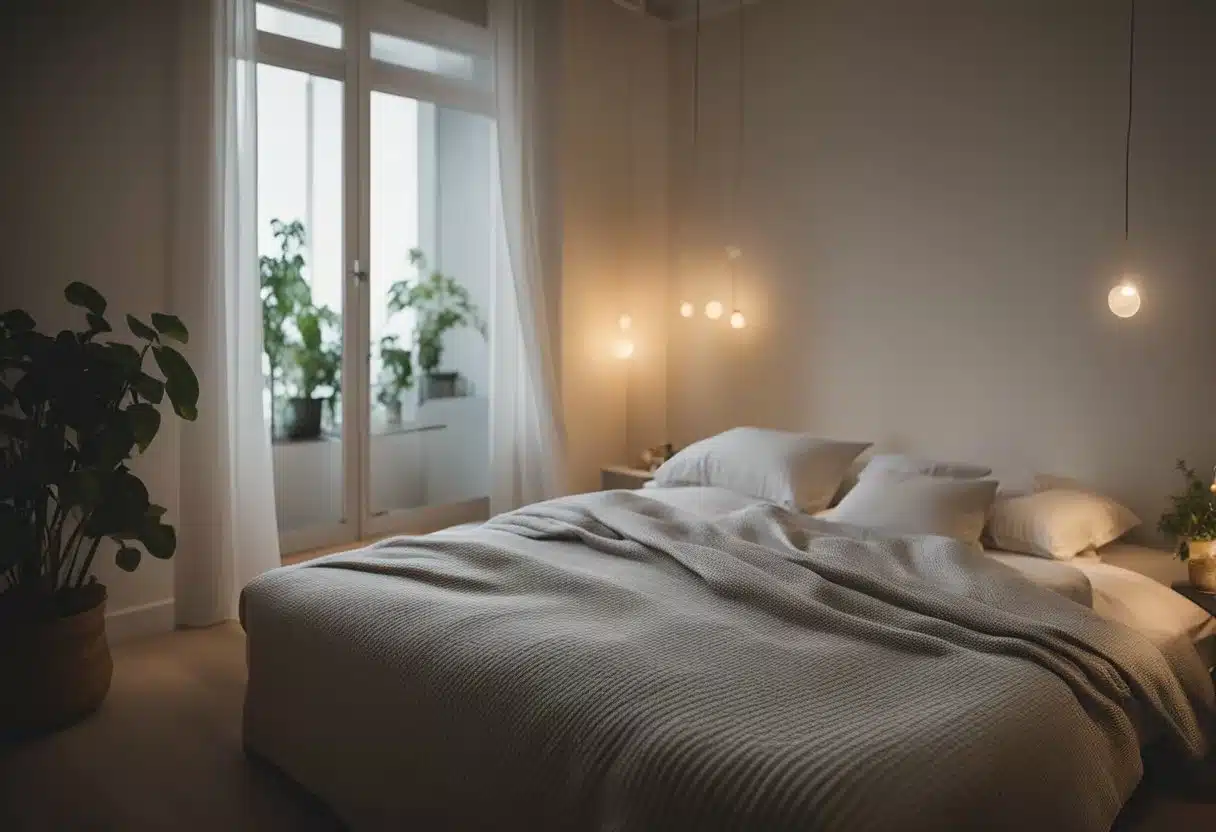
Sleep plays a vital role in our physical and mental well-being. During sleep, our bodies undergo important processes that help us recover and prepare for the next day.
Sleep-wake homeostasis[1] regulates our need for sleep. This internal system balances our time awake and asleep, ensuring we get enough rest.
Our minds benefit greatly from a good night’s sleep. Proper sleep improves thinking, concentration, and focus. It allows the brain to process information and form new memories.
Sleep also affects our physical health. It helps repair tissues, regulate hormones, and support immune function. Without enough sleep, these processes can be disrupted.
Developing good sleep habits is crucial for overall health. Consistent bedtimes, a relaxing nighttime routine, and a comfortable sleep environment can all contribute to better sleep quality.
By prioritizing sleep, individuals can improve their daily functioning and long-term health. The benefits of quality sleep extend far beyond simply feeling rested in the morning.
Frequently Asked Questions

Sleep impacts many aspects of our health and bodily functions. It affects brain activity, repair processes, and even our consciousness. Different chemicals and sleep durations influence how our bodies respond.
Why do we need sleep from a scientific perspective?
Sleep lets our brains and bodies rest and recover. It helps form memories and clear out waste products from brain cells. Without enough sleep, we can’t think clearly or function well.
Sleep also helps regulate hormones that control hunger, stress, and growth. Getting enough sleep keeps these systems working properly.
How does sleep contribute to body repair and healing?
During sleep, our bodies produce more proteins to repair damage from daily wear and tear. This includes fixing muscle tissue, skin cells, and other organs.
Sleep also boosts the immune system. It helps fight off infections and illnesses. Getting good sleep can help wounds heal faster too.
What are the effects of excessive sleep on your body?
Too much sleep can make you feel groggy and unfocused. It may increase the risk of obesity, diabetes, and heart problems.
Oversleeping can also lead to headaches and back pain. It might disrupt your sleep schedule and make it harder to fall asleep at night.
What chemical is responsible for inducing sleep?
Melatonin is the main hormone that makes us sleepy. Our brains release it when it gets dark outside.
Adenosine also builds up in our brains during the day. As levels rise, we feel more tired. Caffeine blocks adenosine, which is why it keeps us awake.
How does brain activity change during sleep?
Brain activity slows down during non-REM sleep. This is when deep sleep happens. Our brains process memories and clear out toxins during this time.
During REM sleep, brain activity increases. This is when we dream. Our bodies are paralyzed, but our minds are very active.
What is the role of sleep in the location of consciousness?
Sleep changes our level of consciousness. When we’re awake, we’re fully aware of our surroundings. During sleep, our awareness shifts inward.
In deep sleep, we have little conscious awareness. During REM sleep, we may experience vivid dreams but aren’t aware of the real world around us.
References
- The Science of Sleep: Understanding What Happens When You Sleep. https://www.hopkinsmedicine.org/health/wellness-and-prevention/the-science-of-sleep-understanding-what-happens-when-you-sleep Accessed October 29, 2025
- Sleep Deprivation and Deficiency. https://www.nhlbi.nih.gov/health/sleep-deprivation/health-effects Accessed October 29, 2025
- Sleep and longevity: How quality sleep impacts your life span. https://mcpress.mayoclinic.org/healthy-aging/how-quality-sleep-impacts-your-lifespan/ Accessed October 29, 2025
- Sleep disorders - Symptoms and causes. https://www.mayoclinic.org/diseases-conditions/sleep-disorders/symptoms-causes/syc-20354018 Accessed October 29, 2025
- Sleep Disorders: Types, Causes, Symptoms & Treatment. https://my.clevelandclinic.org/health/diseases/11429-sleep-disorders Accessed October 29, 2025
- What Happens When You Sleep: The Science of Sleep. https://www.sleepfoundation.org/how-sleep-works/what-happens-when-you-sleep Accessed October 29, 2025
